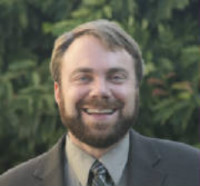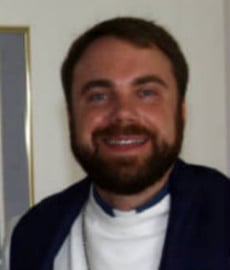
–A few days ago, I was riding in a mini-van with the Imam of the large Mosque in San Diego–down on Balboa.
–His name is Taha Hassane, and he has four children in grades preschool to 9th grade.
–He is 42 years old and is Algerian by birth.
–He served as an Imam in Denver, Colorado, where he and his family often enjoyed taking rides up into the mountains on weekends.
–And for the past 10 years and 3 weeks, he has served as Imam of the Islamic Center of San Diego.
–As we rode together to an event in Claremont, we talked about our children entering high school, of our respective communities that we love, and of course, 9-11.
–He shared that he started work at the mosque 3 weeks before 9-11–can you imagine?
–He said that it was definitely a crazy time at first and that when his wife and children arrived from Denver later in September to join him in San Diego, he was a little afraid for them as they travelled.
–The Muslim community was prepared for the worst after 9-11, but Taha said he didn’t blame Americans for such feelings.
–As he reflected on the past 10 years, he said that he understands how people have felt towards their Muslim neighbors.
–And he shared that it was a wakeup call for American-Muslims who had lived for the most part, in isolated communities and with a few exceptions had not engaged in relationship with other religions.
–I asked Taha what he hoped for ten years from now.
–He said that he hoped that Muslim-Americans would be better assimilated into American culture.
–Then I asked Taha him if he wanted to go back to Algeria.
–Taha quickly answered “no.”
–And at that moment, I realized that we shared something special.
–We both knew that our wives would probably kill us if we suggested moving anywhere else…
–I share this small encounter with a Muslim leader because ten years ago our world changed.
–As much as we would like to go back and change the circumstances of 9-11 and its aftermath, we cannot.
–We can only move forward, a little wiser, a little more circumspect and in hope that with such horrific events, we may grow bolder in sharing God’s love with a world that aches to be whole.
–As I read our gospel text from Matthew this week, I was again struck by Jesus’ words to his disciples that when someone was wronged by another person in the community they were to forgive them not just seven times, but “seventy-seven.”
–If you think about it, it is an absurd amount.
–I mean, realistically, it’s hard enough to forgive someone once, let alone twice. But seventy-seven times?
–Jesus of course, realizes this, but this does not stop him from making the demand.
–It is the nature of Christ’s words that they not only penetrate our mind, but absorb our heart.
–For anyone who has had to forgive someone for a serious wrong, you know how truly difficult this is.
–Forgiveness is not so much an act as it is a letting go.
–Letting go of what burns our insides.
–Letting go of what tortures us in the late hours of the night.
–Letting go of the accompanying fear that perpetuates such pain.
–By now, you know that I am not talking just about 9-11 and large abstract group of people called Muslims, but I am talking about us, about you and me as we walk together in this journey of life and faith.
–You know what is in your own heart.
–You know all too well the slights, the comments, the straightforward hurts that you have accumulated in this life.
–How they can seem to coalesce together when you feel your worst.
–Jesus uses the parable of debt to describe such feelings and in these past years of economic difficulties, such a metaphor is apt.
–Debt is not so much an absence of something; it is a weight that cannot be put down.
–And such a weight tugs at our whole being.
–So why is it so difficult to forgive?
–I think in part, it is that forgiveness has less to do with the hurt of the moment as the accumulated pain of a lifetime.
–I can’t tell you how many times as a pastor, I have had to take a breath when someone comes at me with an energy that seems beyond the circumstances.
–When they are upset with me or someone else for a wrong that they have experienced and now they strike out in a mixture of pain and anger and woundedness.
–As you know, it is hard not to be submerged in such pain like trying to rescue someone who is drowning.
–In fact, it can be as dangerous for the person trying to help as the one who is thrashing about in their emotions.
–Here, Jesus has words for us found elsewhere in Matthew:
–“Come to me, all you that are weary and are carrying heavy burdens, and I will give you rest. Take my yoke upon you, and learn from me; for I am gentle and humble in heart, and you will find rest for your souls. For my yoke is easy, and my burden is light.”
–Simply, we are not alone.
–If you are caught in the burden of needing forgiveness or having to forgive, know that you are not alone.
–That there is a God who knows you and I better than we know ourselves.
–One who shares our burdens.
–One who takes them each day.
–And one who ultimately shows us in his life, death, and resurrection, that there is more to this life than simply putting our best foot forward.
–That we are invited to truly live in the peace and presence of God.
–Now, if you are a careful reader of our gospel text, you soon realize that Jesus’ words are aimed at addressing the strife within a specific community—what will become the Christian community.
–But the question remains, what about people outside our community?
–What is our relationship with those who do not readily belong?
–Do we dare expose our vulnerability?
–Do we dare engender relationships with others that risk both pain and love and even forgiveness?
–For ten years I have been watching the politics, the religious posturing and the stark use of power as our world still reels from the effects of a tiny group of extremists who sought to divide the world.
–Who sought to find old fissures of historical circumstance and stick their fingers in until the wounds run too deep to heal.
–And I have with great sadness witnessed so many people on all sides rush to those old fissures and begin to unwittingly pull with indignant self-righteousness.
–I cannot but think that two world-wars and a holocaust might inform us of both our common humanity, but also how easily we are distracted in believing that someone is less than.
–Less than worth feeding.
–Less than worth protecting.
–Ultimately, less than human.
–For if we forget whose creatures we are, then we truly have lost ourselves.
–And its effects reverberate throughout God’s creation.
–You need to know that we are in a crucial time of history.
–Our actions, our relationships with those we so quickly label as “other,” such as people of other faiths and persuasions, and most markedly in these days, Muslims—that these relationships literally make a world of difference.
–If God is willing to see Christ in us, are we willing to see Christ in each other?
–Is there anyone in the world who God does not love?
–Is there anyone in the world who is not a sinner, who is not worthy of being redeemed?
–Is there anyone in the world who Christ has not died for?
–Friends, it takes courage to love, to see beyond ourselves, our comfortable community, our place of work, our extended family and friends.
–To places and people who are so different yet so the same.
–It is time.
–Time to heal.
–To acknowledge that this world needs our care and our love.
–That we are called to live truly as God’s children.
–In relationship, in forgiveness, in a love that transforms this world in the twinkle of an eye.
–In the love and peace of God which passes all understanding, which raises people from the dead and a world into wholeness.
–This is more than a dream or mere hope, it is God’s passion and promise.
(Pastor Bob is a pastor in San Diego. I look forward to sharing with you his exceptional six-part class on Islam.)









